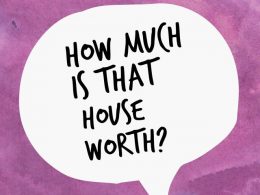Sucks to be a buyer right now huh? House prices keep rising. There are 100 people at each open home so you can’t even have a look around. When you finally see something you do like and you make an offer, it turns out 42 other people want that house as well. And now suddenly investors are buying ‘first home’ type properties too! How is that fair?
In a rising market, the only ones who are happy are the people who own multiple houses. The people who only own 1 house aren’t that happy because they usually want to move somewhere bigger, but unfortunately that ‘next level’ house is just getting more and more expensive all the time. Plus they would have to sell their current home to buy a new one which makes it even harder! Talk to anyone in that situation and they will say that they wouldn’t wish moving with kids on their worst enemy.
In this situation (with the market taking off) a little understanding can help. If you know why prices are rising you can at least sound knowledgeable when you talk to your friends about the real estate market, even if you don’t have a home yet.
Why do property prices keep rising?
1. Birth control.
I know this is a strange way to start this list but bear with me. Young couples are having kids later (and fewer kids overall) compared to previous generations which means they have more money to spend on mortgages. This means you have more people with the money to buy a first home in their mid to late 20’s and early 30’s.
You also have more people coming back from 2 years in London with loads of money and no kids. And on top of that you have more couples earning good money in their 30’s and 40’s with 1 or 2 kids who can afford to buy rental properties, adding more competition to the already over-subscribed first home buyer market.
The entire property market is built on lower priced houses moving well. If the entry level properties are going up in value, that will filter through to the higher end. First home buyers drive the whole market.
As an aside, nothing seems to help a civilisation advance faster and with more prosperity than putting Women in charge (positions of power) and letting them control when they want to have kids.
2. KiwiSaver first home buyer withdrawal.
Young people have more savings then ever before. Nothing could have had a bigger impact on our local property market over the last 6 years than KiwiSaver and the first home buyer withdrawal policy. Every budgeting book you read will tell you to ‘pay yourself first’ and you won’t even notice the difference.
Suddenly young couples who smartly enrolled in KiwiSaver when it first came out have anywhere between $40 – 80k saved (would you seriously have put away that much if it wasn’t automatically deducted from your pay? Now the only way you can access this money before you are 65 is to buy your first home. What a way to drive the real estate market! Plus if you can buy for under $500k in Wellington then the government will give you up to $5k each as well.
Note: The limit goes up to $550k if you a buying a new home.
3. Money is cheap.
Interest rates are low and most economists believe they will stay low for some time to come. This means your competition (other buyers in your market) can afford larger mortgages than they could a few years ago on the same incomes.
Note: Only a few short years ago interest rates were over 10% per year. It could happen again so don’t get too carried away climbing into more debt than you can handle.
4. Property is the only investment we understand.
I’ve tried to read books about shares. I’ve tried to learn about options. When people talk to me about bonds it makes my eyes water. Does anyone else switch-off completely during that 5 minute segment of the 6pm news when they cover the share market movements of the day? Mike McRoberts always tries his best to sound interested when he asks, “Now, what’s been happening in the share market?”. The upcoming sports news is the only thing that stops the nation from instantly changing the channel and even then it’s a close call.
My Wife and I invest a regular monthly amount in smartshares (an index fund based on sectors of the NZ or overseas stock exchanges) instead of buying life insurance or medical insurance as I’d rather have access to the money at the end of the day than make some insurance company rich. That is about all my brain can handle when it comes to the stock market though. It’s a nice easy set-it-and-forget-it policy.
When it comes to investing outside of property, all I remember is people I knew losing everything they had when finance companies started collapsing in 2008. Millions of dollars worth of hard-earned lifetime retirement savings went up in smoke in investments everyone thought were safe and people had nothing to show for it.
5. New Zealand is clinging to its property love affair.
In other parts of there world it simply isn’t as attractive to buy property as it is here. In other counties you usually can’t buy a 3 bedroom standalone house with its own section, 20 minutes from town on starting level salaries. It just isn’t possible so therefore no one seems to long for property ownership the way we do in NZ. It’s just a pipe-dream.
When they walk past real estate shop windows everything says €1 million plus! So there is no point drooling over dream houses on trademe or trying to save a deposit for a crummy flat on leasehold land miles from home. The best that expats in big cities can hope for is to save up enough money to come home and fight it out with you for a sweet house in Johnsonville 😉
Do you think 20-something kids in London realistically dream of owning their own home? Sure they do but it’s like when I walk past the Hugo boss store – all their clothes look awesome and I admire them but I don’t plan to ever buy them. That would be crazy! It’s like those Jimmy Choo’s you dream of wearing but wouldn’t actually buy unless you won lotto.
We need to stop for a moment and realise how lucky so many of us are to have the ability to buy a home, so soon after we start working.
Duncan Garner cries out every week about the sadness that is ever increasing property prices and the lack of housing affordability for young people. Travel to Berlin, there you will find young people don’t dream about opening their own home, they dream about being able to afford to rent a flat which has a proper kitchen, rather than a hallway with an element, in a location which doesn’t involve a 2 hour commute each way to work every day.
Yes it was more affordable for our parents but do you really want to go back and grow up in the 70’s? Maybe that’s a stupid question because that looked like a lot of fun, but seriously now when push comes to shove I don’t think most people would want to go back to a pre Facebook life of cloth nappies, flared jeans, constant smoking and moustaches.
Duncan Garner’s argument is a mute one. We live in the here and now and if you ask anyone overseas who has been here, kiwi or not – they all agree NZ is the best place in the world to live.
There only 2 things that will slow house price growth are:
A. More supply, which isn’t on the cards when Wellington is surrounded by sea and one family owns all the land between Churton Park and Tawa and smartly releases one small street a year on average.
B. Fewer people choosing to live in NZ. If the brain drain ever switches back and people start leaving NZ in droves then it’s all on but I just can’t see that tend reversing anytime soon. Living in Australia doesn’t have the same appeal it used to. Plus, in a globalized world a lot of people can work wherever they choose to, including writers, software developers and designers. As time goes on, more and more of those people are wanting to move to NZ, especially when they see how good we have it here. It’s safe, affordable, we have amazing healthcare, welfare and the weather is pretty sweet to boot.










Well, I guess you know what I think to some extent, if my voice is to be heard then I can say that I disagree with things I read above. I do not think buying a house in NZ should expect to be compared with buying in cities (London, Berlin) that have populations that may be much larger than the whole country. On a global scale, Auckland is said to be the fourth most expensive city in the world relative to average incomes for people to buy a house. This should not be so.
I also do not think people should be directed to give up buying a house and a 1/4 acre section, that is wrong, living in apartment boxes is not what this land is about or has been about, but only may suit a portion of buyers.
The market is a nightmare for buyers, who faced a sudden extreme rise in Wellington house prices, caused in part by lack of migration to Australia, high immigration, arrival of Auckland so-called ‘investors’ in the market when loan restrictions were introduced there but not elsewhere, foreign buyers, and local so-called ‘investors’ jumping on the bandwagon.
Buyers here are faced with possibly having to spend 50-$150,000 or more too much on a property, which they may well lose within 5 years, because this Government doesn’t care how much harm they do to genuine property buyers while they pursue a totally out-of-date ‘economics’ policy that has little to do with the real world of true value.
The so-called ‘free-market’ is not free, it is highly manipulated by an absurd ‘inflation’ target and Reserve Bank Act. The Government could scrap this Act, or change the ‘inflation’ target to 0-1% for times of high property inflation. It could increase interest rates to 5% and drop the dollar by restricting overseas investors from accessing local interest rates, or even partially de-float the dollar.
It should introduce at least 100% deposit requirements for investors, 4.5% loan-to-income ratios, and Australia-style restrictions on foreign buyers, and apply these restrictions to all out-of-town investors and even all local investors in markets where properties are more than 4x average incomes. As house prices fall, it should provide back-up (such as retaining low interest mortgages) to those especially first-home buyers and owner-occupiers who are too much affected by e.g. negative equity.
If people want to get rich quick, the Government should take action to stop the massive wastage of things like food in supermarkets, and encourage the maximum production for the least work by people, so that most people do not end out as lifetime wage-slaves for rich banks, over-working, over-producing, over-advertising, and over-consuming things that they wouldn’t actually be bothered doing if they lived on a desert island and were directly aware of how much effort it takes to do everything. Gareth Morgan’s Universal Basic Income and wealth tax are interesting ideas in this regard.